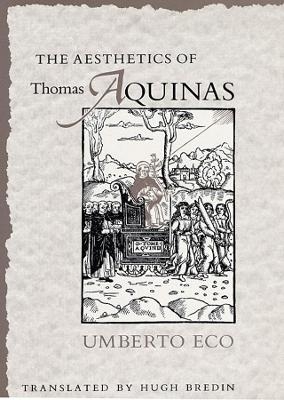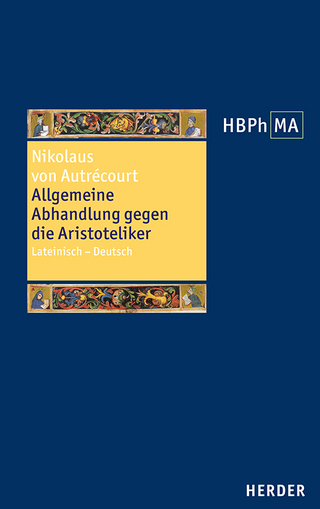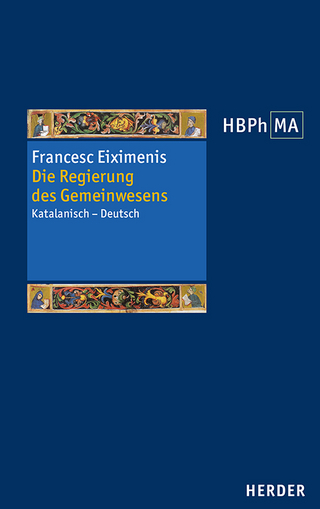
The Aesthetics of Thomas Aquinas
Harvard University Press (Verlag)
978-0-674-00676-8 (ISBN)
Setting the stage with an account of the vivid aesthetic and artistic sensibility that flourished in medieval times, Eco examines Aquinas's conception of transcendental beauty, his theory of aesthetic perception or visio, and his account of the three conditions of beauty--integrity, proportion, and clarity--that, centuries later, emerged again in the writings of the young James Joyce. He examines the concrete application of these theories in Aquinas's reflections on God, mankind, music, poetry, and scripture. He discusses Aquinas's views on art and compares his poetics with Dante's. In a final chapter added to the second Italian edition, Eco examines how Aquinas's aesthetics came to be absorbed and superseded in late medieval times and draws instructive parallels between Thomistic methodology and contemporary structuralism. As the only book-length treatment of Aquinas's aesthetics available in English, this volume should interest philosophers, medievalists, historians, critics, and anyone involved in poetics, aesthetics, or the history of ideas.
Umberto Eco (1932–2016) was an internationally acclaimed writer, philosopher, medievalist, and professor, and the author of the best-selling novels Foucault’s Pendulum, The Name of the Rose, and The Prague Cemetery, as well as children’s books. His numerous nonfiction books include Confessions of a Young Novelist, Six Walks in the Fictional Woods, and The Open Work (all from Harvard). He was a recipient of the Premio Strega, Italy’s highest literary prize; the Prince of Asturias Award for Communication and Humanities; and a Chevalier de la Légion d’Honneur from the government of France.
Preface Translator's Note Aesthetics in Medieval Culture Historiography The Medieval Aesthetic Sensibility Thomas Aquinas The Possibility of Aesthetic Pleasure Plan of the Research Beauty as a Transcendental The Problem The Aesthetic Vision of Things Aquinas's Texts Modern Interpretations Beauty as a Transcendental in Thirteenth-Century Philosophy The Function and Nature of the Aesthetic Visio The Problem Medieval Texts Aquinas's Texts The Aesthetic Visio Intellectual Intuition in Aquinas The Formal Criteria of Beauty The Texts The Concept of Form Proportion: The Historical Data The Concept of Proportion in Aquinas Integritas Claritas: The Historical Data Claritas in Aquinas Concrete Problems and Applications The Beauty of the Son of God The Beauty of Mankind The Beauty of Music Play and Playful Verse The Symbolical Attitude Universal Allegory Scriptural and Poetic Allegory Aquinas's Theory of Allegory Didactic Parabolism A Thomist Poetics Aquinas and Dante The Theory of Art Art and Invention The Ontology of Artistic Form Artistic Form and the Aesthetic On the Possible Autonomy of the Fine Arts The Ambiguity of Art's Autonomy Judgment and the Aesthetic Visio The Function of the Aesthetic Visio The Nature of the Aesthetic Visio Conclusion The Central Aporia in Aquinas's Aesthetics The Dissolution of the Concept of Form in Post-Thomistic Scholasticism Aesthetic Categories and Medieval Society Thomistic Methodology and Structuralist Methodology Notes Bibliography Glossary Index
| Erscheint lt. Verlag | 14.11.1988 |
|---|---|
| Übersetzer | Hugh Bredin |
| Verlagsort | Cambridge, Mass |
| Sprache | englisch |
| Maße | 152 x 229 mm |
| Gewicht | 431 g |
| Themenwelt | Geisteswissenschaften ► Philosophie ► Philosophie des Mittelalters |
| ISBN-10 | 0-674-00676-3 / 0674006763 |
| ISBN-13 | 978-0-674-00676-8 / 9780674006768 |
| Zustand | Neuware |
| Haben Sie eine Frage zum Produkt? |
aus dem Bereich


